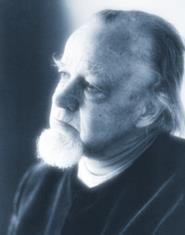Modern Philosophy and Modern Theology
Thesis:
Modern people have put various things “upstairs” in the area of nonreason in a desperate attempt to find some optimism about meaning and values.
Where does that get them?
Starts with Sartre: reason is absurd, but a person can authenticate himself by an act of the will…not by A=A and A not = non-A. But by his own declaration.

Where does that put man?
I loved the display of contradiction in Satre. No one can live this way. No one can live apart from reason. And, if untethered reason leads us to all being part of a machine, then reason was meant to be tethered.
So, philosophers continue to search for meaning beyond reason, in the “upper story.”
What examples does he give of these attempts?
Humanistic man tried to make himself self-sufficient and demanded that one start from himself and the individual details and build his own universals. His great hope that he could begin from himself and produce a uniformity of knowledge led him, however, to the sad place where his mind told him that he was only a machine, a bundle of molecules. Then he tried desperately to find meaning in the area of nonreason, until, with those following Jaspers, the problem became how one could be sure he would ever have a big enough final experience (or, even if he had one, how he could ever have another) and there was no way to be sure.
Where does the ultimate experience lead you?
The drug culture spurred by Aldux Huxley. Hendrix’ “Are you Experienced? Have you ever been experienced?”
Then Eastern religious systems: Hinduism and Buddhism. “Both seek truth inside one’s own head and both negate reason.”
What effect on theology?
Rationalism tried to throw out the supernatural elements of the Bible.
The rationalistic theologians could not separate the historic Jesus from the supernatural events connected with Him. History and the supernatural were too interwoven in the New Testament. If one retained any of the historical Jesus, one had to keep some of the supernatural. If one got rid of all the supernatural, one had no historical Jesus.
In steps existentialism to save the day:
Karl Barth held until the end of his life the “higher critical” views of the Bible which the nineteenth-century liberal theologians held, and thus he viewed the Bible as having many mistakes. But he then taught that a religious “word” breaks through from it. This was the theological form of existentialism and the dichotomy. In other words, the existential methodology was applied to theology. This meant that theology has now been added to all the other things which had been put into the area of nonreason.
Rather than the Word of God, they held to the word “God” and put into it any meaning they wanted so that it held no meaning at all.
If God has not revealed Himself, then there are no absolutes. Good is evil and evil is good. We see this in Hinduism.
The new theologians also have no way to explain why evil exists, and thus they are left with the same problem the Hindu philosophers have; that is, they must say that finally everything that is is equally in God. In Hindu thought one of the manifestations of God is Kali, a feminine representation of God with fangs and skulls hanging about her neck. Why do Hindus picture God this way? Because to them everything that exists now is a part of what has always been, a part of that which the Hindus would call “God”—and therefore cruelty is equal to noncruelty. Modern humanistic man in both his secular and his religious forms has come to the same awful place. Both have no final way to say what is right and what is wrong, and no final way to say why one should choose noncruelty instead of cruelty.
Religious feeling without content: George Harrison, “My Sweet Lord”
Leave a Reply